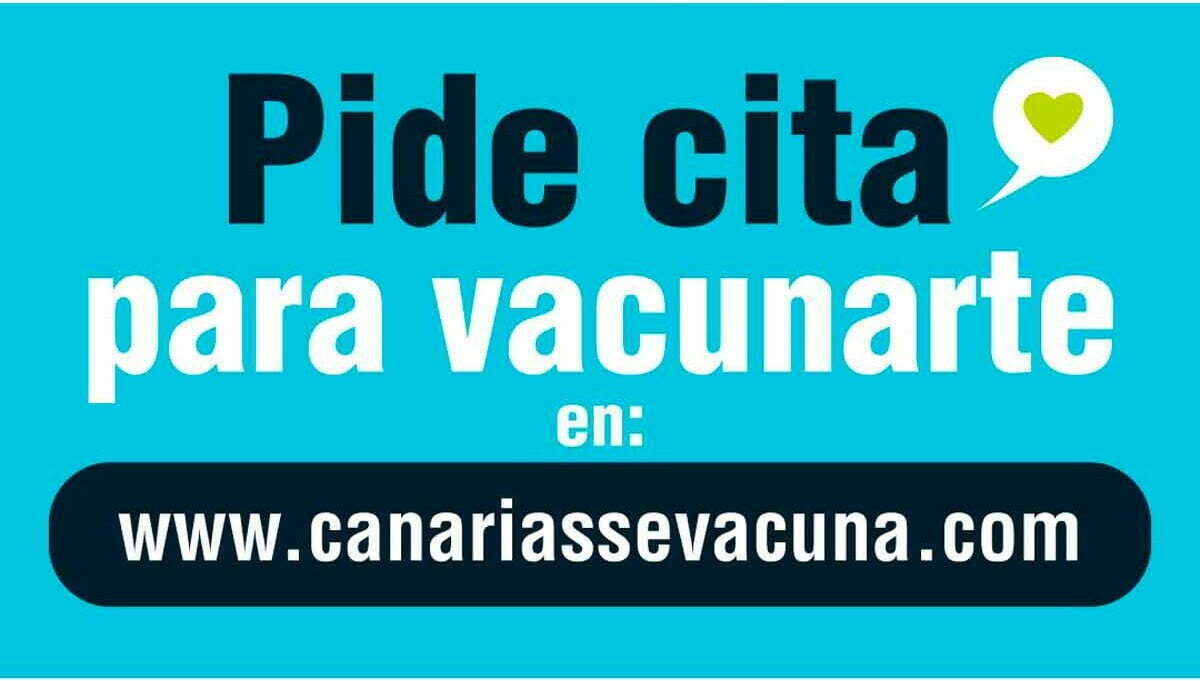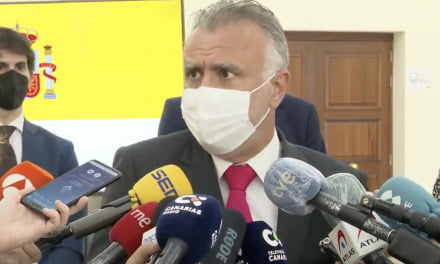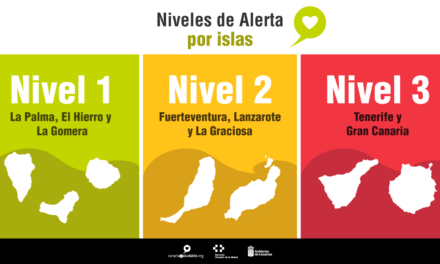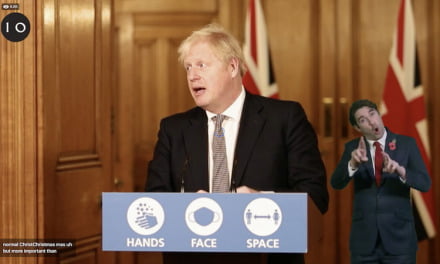With the announcement this week that anyone over the age of sixteen, resident in The Canary Islands, can now register for an appointment to get the COVID-19 vaccine, the Ministry of Health have reported that more than 100,000 residents were processed during the first 24 hours of operation of the new web form (www.canariassevacuna.com) launched this Monday, 24 May by the Regional Government, and this Thursday that number stands at more than 255,000 according to a Ministry of Health press release. The new service forms part of the Canary Islands Health Service (SCS) resources previously made available for the specific age groups and more vulnerable target groups for active vaccination.
For the latest Canary Islands data on Covid-19, updated daily, check our Canary Islands dashboard
Since last week, residents of the Canary Islands over the age of 50, who have not yet received an appointment for their first dose of the vaccine, have been able to call 012 to request it (or 928 301 012 or 922 470 012), to help reinforce the existing system of sending sms messages, or making calls, to patients in each municipal catchment area, as part of the usual protocol of scheduling and notifications by the SCS, which also allows for citizens to request an appointment directly through their health centre.
Anyone legally resident in The Canary Islands, and registered with their local health centre, over the age of 16 years and under 50, can now make a request to get an appointment for vaccination through the web form at canariassevacuna.com. Simply fill in the form with full name, DNI or NIE and a contact mobile phone number.
The information is then compared with the health service database and the SCS will contact them to arrange their appointment for vaccination at any of the vaccination points set up throughout the Canary Islands.
Appointment according to age group opening
Appointments are to be scheduled according to the age group of the service user, advance vaccination calendar forecasts and availability for each of the vaccination age groups, as part of the Regional Government’s aim to get the entire target population of the Canary Islands vaccinated against COVID- 19 this summer. To achieve this the established order of priority by groups as part of the vaccination strategy will continue to be maintained. Previously assigned appointments may be modified as each new corresponding age group schedule is opened.
More than a million vaccines administered
Up until this Wednesday May 26, 316,361 people in the Canary Islands had been immunised having already received the complete vaccination schedule, which represents 16.91% of the target population. 1,011,610 doses had been administered out of the 1,112,360 received.
719,526 people in the Archipelago have received at least one dose of the vaccine, that is 38.46 % of the target population.
Vaccination for Groups 1 and 2 of the roll out schedule (those corresponding to residents and workers within social health centres and first-line health professionals), continues along with the rest of the groups established (see below) following the criteria of vulnerability and exposure.
The Health Ministry highlighted that Group 4, dependents in large households, are currently 94.15% immunised with both doses. In Group 5, there are already 193,719 people who have received the two doses, that is, 67.98%; while 279,902 have received at least one dose, 98.22%.
Group 3 already has 100% having had as least one dose and 27.8% who have had both doses; in Group 6, there are 66,000 people, including teachers, firefighters and policemen, among others, and 42,087 of them have had at least one dose, 63.77%.
Group 7 includes the population under 60 years of age who are at risk of severe COVID-19, 11,672 people have had at least one dose, 65.81 percent of the target population, while the 45.18% have already completed vaccination.
Finally, 103,656 people in Group 8, those aged between 60 and 65, have already received one dose, which is 65.13% of that group; while 30.97% of those in group 9, aged between 50 and 59 years old, have already received their first dose, which is to say 108,558 people in that age group.
Vaccination Points
Multiple vaccination spaces and capacities have been set up across the islands and in particular on Gran Canaria and Tenerife, in addition to the health centres on each of the islands, the four university hospitals of Gran Canaria and Tenerife: the Insular de Gran Canaria, Dr. Negrín, La Candelaria and the HUC; in addition to the Hospital del Sur de Tenerife and in the Primary Care managements of both islands. Likewise, on Gran Canaria there is the Expomeloneras centre and on Tenerife the Las Madres citizen centre, in La Laguna and the Casa del Emprendedor Fairgrounds, in Los Realejos. These last two points serve the residents of the basic health areas of La Laguna, Finca España, La Cuesta and Taco, while those of Los Silos, La Guancha, Icod, Los Realejos, will be seen in the second.
Population groups to be vaccinated
Group 1. Residents. healthcare and social health personnel who work in homes for the elderly and care for large dependents.
Group 2. Front-line personnel in the health and social-health field.
Group 3. Other health and social health personnel.
Group 3A. Hospital and PC personnel not considered in group 2. Dental, dental hygiene and other personnel.
Group 3B. Public Health services personnel-management and response to the pandemic. Health and social health personnel not previously vaccinated. Physiotherapists, occupational therapists, pharmacy offices, dental technicians.
Group 3C. Rest of health and social health personnel not previously vaccinated.
Group 4. Large non-institutionalised dependents.
Group 5. Senior groups
Group 5A. People aged 80 and over.
Group 5B. People from 70 to 79 years old.
Group 5C. People from 60 to 69 years old.
Group 6 . Groups with an essential function for society:
Group 6A. Security Forces and Bodies, Emergencies and Armed Forces.
Group 6B. Teachers and staff of early childhood education and special education.
Group 6C. Teachers and staff of primary and secondary education.
Group 7. People under 60 years of age with severe COVID-19 high risk conditions.
Group 8. People aged 56-59 years.
Group 9. People aged 45-55 years.














